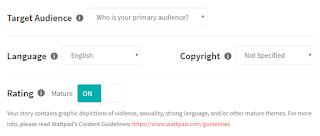These four words are said over and over, multiple times a day by teenage girls all over the world. It is a phrase that has become far too familiar to us. Why are we hearing these four words more and more? The answer is, social media. As teenage girls we, (Eva and Scarlet) have seen the negative impact social media has on young women and have both experienced our own struggles with body image thanks to the negative, unrealistic and fake expectations of society that are spread & shared through social media.
We're sure that the founders of Instagram, Kevin Systrom and Mike Krieger or, Mark Zuckerberg who created Facebook, were clueless to the damage their platforms would do on body image when their media was created. But yet here we are in 2019, with multiple studies by organisations such as the Department of Psychology at New York University, with proof that social media impacts how we see ourselves.
Social media is portrayed as a negative and unhealthy technology, but we can't forget that there are also many positive things that come out of using it.
So what do other young women think about this topic?
We recently did a survey asking girls how much pressure they feel to live up to social media's unrealistic body standards. Here are some shocking results...
Hypothesis: We think the results for each question will show that a lot of people do feel body conscious and that social media does promote a certain body shape/type.
Our first question was: Has social media impacted the way you look at your body?
Out of 94 people aged 13-18, 61 people (65%) said yes and 33 people (35%) said no, it didn't impact they way they looked at themselves.
From seeing these results, we are both not surprised because we know from hearing, seeing and experiencing first hand that social media has created a negative ripple effect over teenagers. We expected well over 50% of surveyed people would say that social media impacted the way they looked at themselves, so we were saddened but not necessarily surprised by this result.
The next question we asked in our survey was; How much pressure do you feel to live up to social media's body standards? (1=hardly any pressure 5=lots of pressure)
The average answer was 2.75.
We thought that the average would be slightly higher because social media is often looked at in such a negative way. At the same time we are happy to know the average is lower than our expectation. The results show that most feel a medium amount of pressure to live up to social medias body standards.
Question 3/4 was "When looking at your own body do you compare it to people on social media"
55 people said yes and 39 people said no, we then further questioned the people who said yes by asking who they compare themselves too.
We had mixed results for this question but there were a few common answers we noticed, some being: 22 out of 53 people said they compare themselves to their friends, 15 out of 53 people said they compare themselves to celebrities, 14 out of 53 people said they compare themselves to models/influencers.
We expected to see all of these answers - celebrities, models, influencers and friends - because we have both personally compared ourselves to each of these categories of people, which is a sad reality that we feel the need to compare our bodies to the people we surround ourselves with.
Question 5 : We then asked what images/expectations social media was creating around body image.
The most recurring answers to this question were;
"skinny"
"slim thicc"
"big bust and butt"
"hourglass figure"
"small waist"
"curvy and skinny"
"toned"
"flat stomach"
Some interesting answers were;
"There is one/a very small box which defines what being beautiful means, and people must fit into it in order to be accepted."
"You have to look like a model, which is practically unachievable without photoshop or plastic surgery"
"There IS such a thing as perfect"
"Plastic"
"Can't be too sure I've seen both the positive and the negative"
These answers were very interesting to read and opened our eyes to what insecurities other girls of similar ages to us have as it's not a hugely talked about topic between girls.
The answers: " There IS such a thing as perfect" and "There is one/a very small box which defines what being beautiful means, and people must fit into it in order to be accepted" made us quite upset because no two bodies are identical and every body is one of a kind and we think that is something to appreciate and acknowledge in a positive way as opposed to it being a negative thing.
Question 6: Do you think social media's body expectations are:
Positive = 10 people
Negative = 35 people
Unrealistic = 65 people
Fake = 39 people
Misleading = 59 people
Other = 7 people
10.
What year are you?
YEAR #
9 27
10 25
11 12
12 23
13 8
OUR CONCLUSION
These results made us quite upset and truly showed us a bigger picture on how widely damaging the unrealistic body expectations are for teens. We felt that the results of our survey had many recurring answers which showed that there are a significant number of people who are impacted by similar things on social media, and this is showed in the results we received. We think this issue must have a resolution; although social media and body image is constantly changing and evolving we need to stand up, show awareness and make a change for the better. It is sickening to hear that people wish they had a different body. We need to begin the journey of loving ourselves and theres no better time to start than now. So lets start saying, I love my body.
BY EVA AND SCARLET :)


















